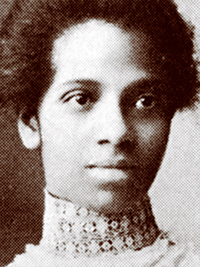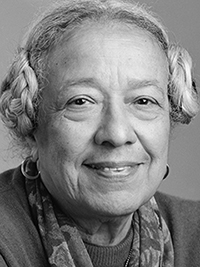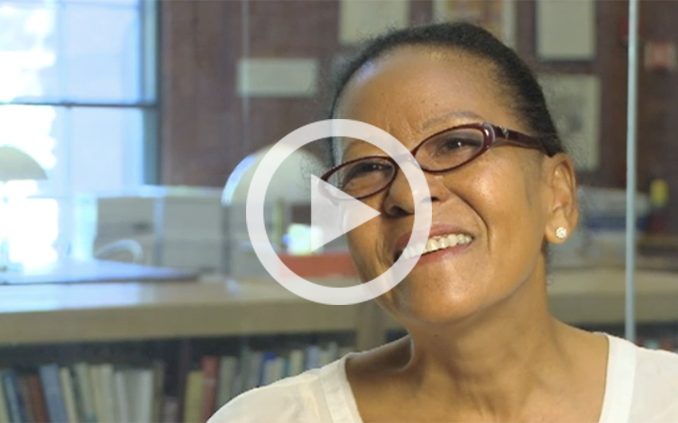Cromwell Day
For the 2021 Cromwell Day convocation, the Smith community created an inspiring digital quilt.
Cromwell Day provides dedicated time and space for reflection and education about diversity, racism and inclusion. Through the work of the Office for Equity & Inclusion (OEI), together with campus partners, the college seeks to take individual and community responsibility for our behavior with an awareness of how that behavior furthers and disrupts patterns of structural oppression.
Cromwell Day 2022
For our annual celebration of Cromwell Day, the Smith community will come together on November 15, 2022 around the theme “Ignorance Is Not Bliss: The Necessity of Teaching and Learning about Race.” This theme confronts national movements including the banning of books about slavery in K–12 schools and the gerrymandering of voting districts, as well as the history of race and anti-racism at Smith. Understanding the significance of race and anti-racism locally and beyond is critical to being an informed member of society.
VIEW THE SCHEDULE, WORKSHOPS AND MORE

Crystal Fleming to Deliver 2022 Keynote Address
Dr. Crystal Fleming is professor of sociology and Africana studies and associate faculty in the Department of Women’s, Gender and Sexuality Studies at Stony Brook University. She is an author, public intellectual and expert on global racism and white supremacy.
Confronting Challenges. Creating Change.
Through individual and community engagement, we reach hearts. Through inclusive education and programming, we nourish minds. Through institutional change and collaborations, we realign systems. Since its beginning, Smith has been at the forefront of envisioning a world where we all belong. Cromwell Day gives us an opportunity to reflect upon our accomplishments and look ahead to all that we can still do to evolve and transform. Every voice matters, and every step—whether large or small—makes a difference.
TOWARD RACIAL JUSTICE AT SMITH ACTION PLAN
Equity & Inclusion in Action: Selected Examples from 2020–21
The History of Cromwell Day
Mary Maples Dunn, then president of Smith College, initiated Otelia Cromwell Day in 1989 to provide an opportunity for further education and reflection about issues of diversity and racism. At the 2019 ceremony, the college announced that the event would be renamed Cromwell Day, following the wishes of the Cromwell family and to honor the legacies of both Otelia Cromwell 1900 and her niece, Adelaide Cromwell ’40.
About Otelia Cromwell
 Born in Washington, D.C., in 1874, Otelia Cromwell was the first of six children born to Lucy McGuinn and John Wesley Cromwell, a journalist, educator and the first African American to practice law with the Interstate Commerce Commission. Otelia Cromwell’s life and work were characterized by a deep sense of justice and responsibility toward others.
Born in Washington, D.C., in 1874, Otelia Cromwell was the first of six children born to Lucy McGuinn and John Wesley Cromwell, a journalist, educator and the first African American to practice law with the Interstate Commerce Commission. Otelia Cromwell’s life and work were characterized by a deep sense of justice and responsibility toward others.
About Adelaide Cromwell
 Adelaide Cromwell ’40 was the first African American professor appointed at Smith. After teaching at the college, she served for more than 30 years on the sociology faculty at Boston University. There she co-founded the African studies program in 1953 and founded the Afro-American studies program in 1969, the first graduate program in the country in that field.
Adelaide Cromwell ’40 was the first African American professor appointed at Smith. After teaching at the college, she served for more than 30 years on the sociology faculty at Boston University. There she co-founded the African studies program in 1953 and founded the Afro-American studies program in 1969, the first graduate program in the country in that field.
After graduating from the Miner Normal School, Otelia Cromwell taught in the Washington, D.C., public schools for several years. She transferred to Smith College in 1898 and graduated in 1900. She returned to teaching for a number of years and then resumed her education, receiving a master of arts from Columbia University and a doctorate from Yale University in 1926; Cromwell was the first African American woman to receive a Yale doctorate. She soon became professor and chair of the department of English language and literature at Miner Teachers College in Washington, D.C.
Cromwell remained at Miner Teachers College until her retirement in 1944. A distinguished scholar and teacher, she authored three books and numerous articles including Readings From Negro Authors, for Schools and Colleges, the result of collaboration with Eva B. Dykes and Lorenzo Dow Turner. It was one of the first collections of its kind. She received an honorary degree from Smith College in 1950.
After her retirement from teaching, Cromwell accomplished her most significant scholarly work, The Life of Lucretia Mott, the Quaker abolitionist and women's rights activist. It was published in 1958 by Harvard University Press and continues to be cited by contemporary scholars. Cromwell passed away in 1972 at the age of 98.
Adelaide Cromwell was also a leader and activist in Africa, convening the first conference of West African social workers in Ghana in 1960, and serving on a commission to assess the state of higher education in what was then called the Belgian Congo. A member of the executive council of the American Society of African Culture, the American Negro Leadership Conference in Africa and the advisory council on Voluntary Foreign Aid, among others, she also maintained active membership in the Council on Foreign Relations and a number of professional organizations.
She is the author of several books, including Unveiled Voices, Unvarnished Memories: The Cromwell Family and Slavery and Segregation, 1692–1972, and An African Victorian Feminist: The Life and Times of Adelaide Smith Casely Hayford, 1868–1960.
Cromwell earned a master’s degree in sociology from the University of Pennsylvania and a doctorate in sociology from Radcliffe College. A recipient of the Smith Medal in 1971 and an honorary degree in 2015, she was the niece of Otelia Cromwell, class of 1900. Adelaide Cromwell passed away in 2019 at the age of 99.
Smith Voices: Progress & Possibilities
Linda Smith Charles ’74
“We certainly wanted to make sure that the institution understood our needs as Black women on this campus ... I found Smith, in hindsight, really doing its best to try to accommodate the needs. They didn’t know what to do, but were certainly willing to listen ...”—On student activism, in an interview for the Alumnae Oral History Project.
Sylvia Lewis ’74
“... I think what Smith learned was about how they should embrace change, or can embrace change, and that it really is good, and will be something that would be very impactful and very positive for the future generations.”—On the formation of the African American Studies Program, in an interview for the Alumnae Oral History Project.
Ryan Rasdall ’11
“... I think the campus was moving in the right direction of trying to grapple with this and understand, Why did this happen? What can we do to be more supportive? To be a better — make people feel safe on our campus?”—On the atmosphere on campus after a racist incident, in an interview for the Alumnae Oral History Project.
“The Life and Legacy of Otelia Cromwell” was created as part of the college’s 25th annual Cromwell Day celebration honoring Smith’s first African American graduate.
Smith College commissioned poet Nikky Finney to compose a poem in honor of Otelia Cromwell. She debuted “Maven” in 2009. Hear Camille Ollivierre ’20’s recitation at the 2019 ceremony (starting at 21:20).
For Otelia Cromwell, 1874–1972
GENUS: DAUGHTER
"When you are a thinking woman neither violence or sugar plums can muzzle the power of thought."
Imagine, hatch, comprehend, apprehend:
Know the inside and the out. You are just
a girl when your mother dies. Left to tend
the rest of the flock, you, the oldest,
the one most like your father, taught
to leave no stone unturned, marry thrift
and industry, while burying your head
in the stacks. Sang-froid but never
silent. Inquire, picture, ponder, think
over, think and think, again. Giddy
with your own mind, "Master everything"
is the family crest, no veil feigning, faking,
guise, masquerade, or fanfare. There is
a right way and a wrong. When you give
your hand to the world, your responsibility:
To have a mind, keep in mind, change
a mind—and be the last to die.
GENUS: SCHOLAR
"An educated group is a thinking group."
Intuit, divine, check and recheck, invent:
Know the backward and the forward.
You care nothing for the popular, even
less for the slipshod. Your arms flower
with all the leading out books, choosing
wisely what and who trains you: Frankness,
virtuoso, mastery, crackerjack. Think and
think, again. You leave college and university
exceptionally prepared. You are complex
and astute, as calm as a comma. No time
for jewelry or parlor beaus. There is
a gold watch, a signet ring, a Smith
College pin: White letters on gold just
above the heart. Diligent, proficient, self-
possessed, you weigh in with words, to state
your tolerance to the inefficient. You never
back down from what is right. Young Adelaide
is your "dependable" and the 9th graders
leaning in to your instruction whisper: This
must be college. You gray beautifully—but early.
GENUS: WRITER
"The genius does not write to please."
(nor live to marry)
Veritas. Words pulled through a fine-tooth
comb, then, before sleep, pulled through,
again. You refuse to segregate language from
life, read German for sport and swing golf
clubs just to stay on the qui vive. You write
of the legality of taxes, pica out democracy,
vow and edit for the intergral Negro intellectual.
Winnow, probe, sift through, quest: Think
and think, again. Solemnly engaged now to
Lucretia & Thomas, you dislike being called
"Dr." and remain forever keen on "Miss."
What the dutiful trained hand can perfectly
stitch delights you. Unconventional and easy-
going, your desire never wanes: To be put
through the paces, edify, enlighten, to work
outward—from simple seam to monogram.
We herald your bright hallmark of firsts,
those sprightly high-waisted truths; the soft-
spoken whippersnapper, eloping still.
All words in italics are the words of Otelia Cromwell.
©2009 Nikky Finney.



